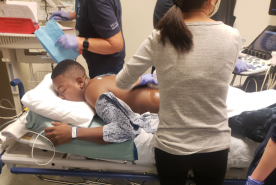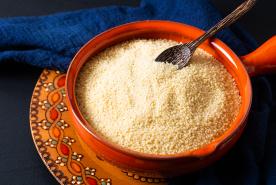Last Updated: January 06, 2025
Medically reviewed by NKF Patient Education Team
About COVID-19
COVID-19 is a disease caused by a virus called SARS-CoV-2. It started as a pandemic, meaning it spread quickly around the world. Today, COVID-19 is considered endemic, which means it still exists, but we are learning to live with it. For people with chronic kidney disease (CKD) or those who have had a kidney transplant, COVID-19 can be more serious.
People on dialysis can have weaker immune systems, making it harder to fight infections. However, it is important to know that those with kidney failure need to continue with their regularly scheduled dialysis treatments and take necessary precautions as their healthcare team recommends.
People who have received a kidney transplant need to take anti-rejection medicines (also known as immunosuppressive medicines). These medicines keep the immune system less active, making it harder to fight infections. It is important to keep taking these medicines.
Signs and Symptoms
COVID-19 affects people differently. Some people may feel like they have a cold, while others can get very sick. If you have CKD or a kidney transplant, it’s important to watch for these signs:
- Fever or chills
- Cough
- Shortness of breath
- Fatigue (feeling very tired)
- Muscle or body aches
- Loss of taste or smell
- Sore throat
- Congestion or runny nose
- Headache
Risk Factors
A risk factor is something that increases your chances of getting sick. People with CKD, receiving dialysis, or living with a kidney transplant have a higher risk of serious illness from COVID-19. This is because their immune systems might not work as well. Here are some risk factors for serious COVID-19 disease:
- Having CKD (especially stages 3-5)
- Being on dialysis
- Having had a kidney transplant
- Being older than 65
- Having other health conditions like diabetes, heart disease, lung disease, HIV infection, or cancer
Prevention
To protect yourself from COVID-19, here are some things you can do:
- Get the updated COVID-19 vaccination.
- Ask your healthcare provider about pemivibart (Pemgarda™) if you are moderately or severely immunocompromised. This monoclonal antibody can provide extra protection and is given as a 60-minute IV infusion, with repeat doses every 3 months if needed.
- Wear a mask in crowded places.
- Wash your hands often with soap and water.
- Avoid close contact with people who are sick.
Treatment
If you test positive for COVID-19, there are treatments available that may help reduce the severity of the illness. Some common treatments include:
- Antiviral medications: Helps to slow down the virus in your body.
- Monoclonal antibodies: Lab-made proteins that help your body fight the virus.
- Steroids: Helps reduce inflammation caused by the virus.
Your healthcare team will decide which treatment is best for you based on your CKD stage or if you have had a transplant.
Questions to ask
- What are my risks if I get COVID-19 with my kidney condition?
- Understanding your risk helps you prepare and manage any potential illness.
- Should I get the updated COVID-19 vaccine, and how often?
- Vaccination schedules can vary for people with CKD and transplant recipients, so speak to your healthcare provider to hear what they recommend.
- What should I do if I think I have COVID-19 symptoms?
- Early action can reduce the severity of illness, especially for high-risk individuals.
- Are there any treatments I can take to reduce my risk of serious illness?
- Knowing available medications can help you take proactive steps if you contract COVID-19.
- How can I protect myself if someone close to me has COVID-19?
- Protecting yourself from household exposure is crucial for reducing your risk of infection.

















